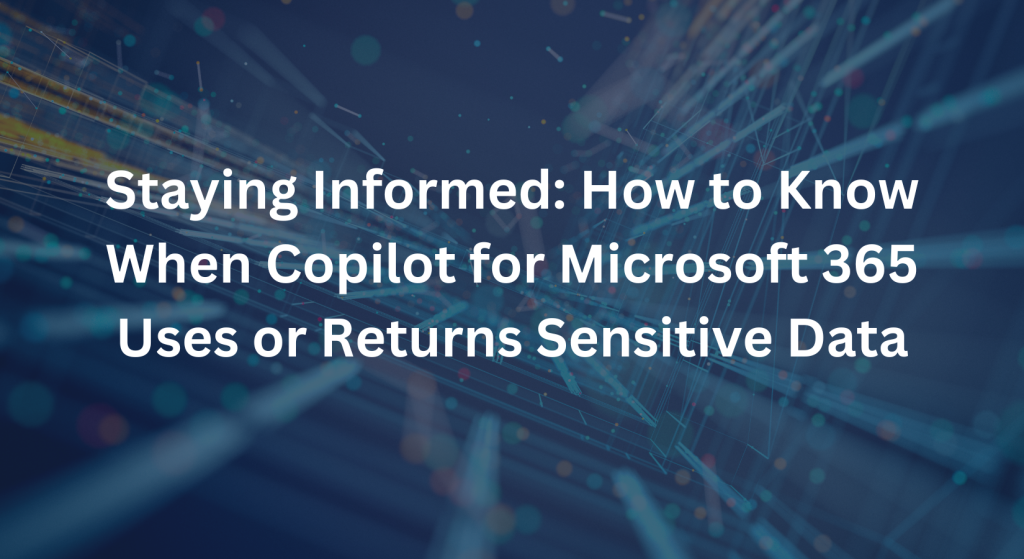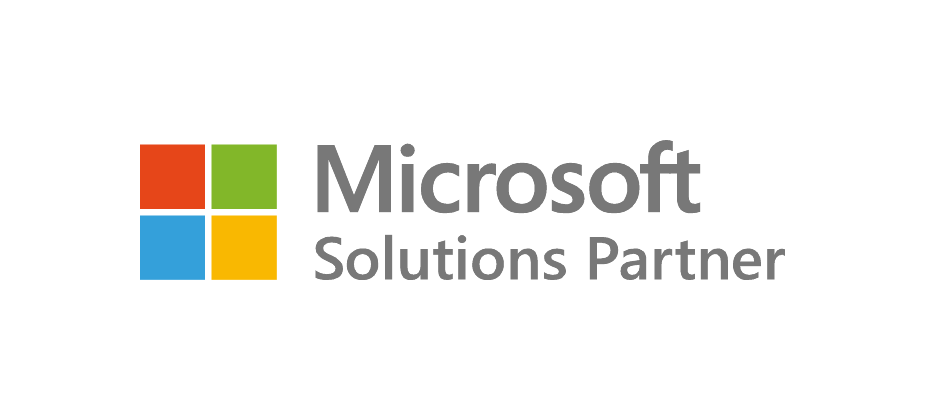
As more organizations use Artificial Intelligence (AI)-driven tools, like Copilot for Microsoft 365, to boost productivity, it becomes crucial to ensure the security and privacy of sensitive data. Copilot, an AI-powered assistant, interacts with various data types across applications such as Word, Excel, PowerPoint, Outlook, and Teams. It’s essential to be aware of when Copilot uses or returns sensitive data to maintain compliance and protect privacy. This blog will guide you on how to stay informed and manage these interactions effectively.
Understanding Sensitive Data
Sensitive data includes any information that must be protected due to its confidential nature. This can range from personal identifiers (like social security numbers and contact details) to financial records, health information, intellectual property, and proprietary business data. Mismanagement or exposure of such data can lead to significant risks, including legal penalties, financial loss, and reputational damage.
Key Strategies to Monitor Copilot for Microsoft 365’s Interaction with Sensitive Data
- Data Classification and Labeling:
- Implement data classification policies to label and categorize sensitive information within Microsoft 365. Using tools like Microsoft Information Protection, you can tag documents, emails, and other data types with sensitivity labels (e.g., Confidential, Highly Confidential). These labels help in tracking and managing data more effectively.
- Audit Logs and Reporting:
- Utilize Microsoft 365’s audit logs and reporting features to monitor Copilot’s activities. These logs can provide detailed records of data access, modifications, and sharing activities. Regularly review these logs to identify when and how Copilot interacts with sensitive data.
- Data Loss Prevention (DLP) Policies:
- Configure DLP policies in Microsoft 365 to automatically detect and restrict the sharing of sensitive information. DLP policies can alert you or block actions when sensitive data is accessed or shared inappropriately. Customize these policies to suit your organization’s data protection needs.
- User and Admin Training:
- Educate users and administrators about the importance of data security and the functionalities of Copilot. Training should cover how to identify sensitive data, the potential risks associated with its exposure, and best practices for secure data handling.
- Conditional Access Policies:
- Set up conditional access policies to control when and how users can access Microsoft 365 services and data. These policies can enforce multi-factor authentication, restrict access based on user location or device compliance, and limit actions involving sensitive data.
- Regular Security Assessments:
- Conduct regular security assessments and audits to evaluate the effectiveness of your data protection measures. Use Microsoft Secure Score to get insights and recommendations on improving your security posture within Microsoft 365.
Practical Steps to Track Sensitive Data Usage by Copilot for Microsoft 365
- Enable Advanced Audit:
- Ensure that advanced auditing is enabled in your Microsoft 365 environment. This feature provides more detailed and granular logging capabilities, which are crucial for monitoring sensitive data interactions.
- Set Up Alerts:
- Create custom alerts for specific activities involving sensitive data. For example, you can set alerts for when sensitive documents are accessed, shared, or modified by Copilot. These alerts can be configured through the Microsoft 365 compliance center.
- Use Microsoft Cloud App Security (MCAS):
- Deploy MCAS to gain deeper visibility into the activities and data flows within your Microsoft 365 environment. MCAS can help you detect and investigate unusual behavior, providing real-time monitoring and control over data interactions.
- Monitor AI and Machine Learning Activities:
- Keep track of AI and machine learning activities by reviewing the output generated by Copilot. Ensure that the AI outputs do not inadvertently expose sensitive information. Use tools like Azure Machine Learning to manage and monitor AI models and their data interactions.
- Review Sensitivity Labels and Policies Regularly:
- Regularly review and update sensitivity labels and DLP policies to adapt to changing data protection needs and regulatory requirements. Ensure that new types of sensitive data are appropriately classified and protected.
Conclusion
Being aware of when Copilot for Microsoft 365 uses or returns sensitive data is crucial for maintaining data security and compliance. By implementing robust data classification, auditing, DLP policies, and user training, you can effectively monitor and manage Copilot’s interactions with sensitive information. Leveraging Microsoft 365’s advanced security features and regularly reviewing your data protection strategies will help ensure that your organization remains secure and compliant while benefiting from the enhanced productivity that Copilot offers.

Recent Posts
- Thinking About Leaving GoDaddy? Discover How to Gain Full Control of Your Microsoft Tenant and Boost Security
- 5 Advanced Security Features of Azure Virtual Desktop for Enterprise Protection
- Top 10 Questions IT Leaders Ask About Azure Virtual Desktop (AVD)
- How Azure Virtual Desktop Simplifies Remote and Hybrid Work for IT Leaders
- Azure Virtual Desktop vs. Windows 365: Which Cloud Desktop Solution is Right for Your Business?
Each Azure project begins with a comprehensive Azure assessment, during which our team evaluates the existing environment, tackles challenges like compatibility and security, and designs a personalized migration approach.
